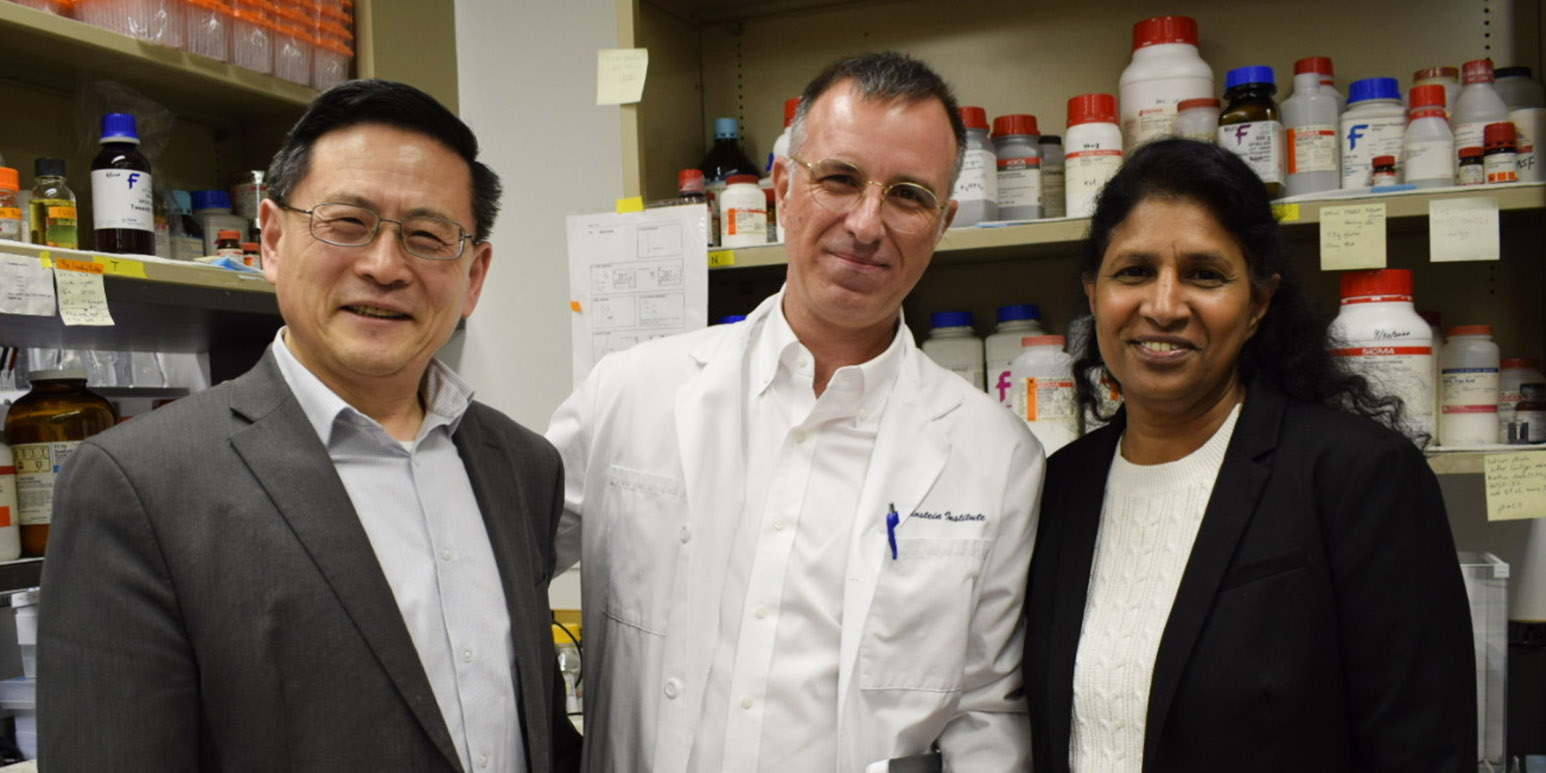The Feinstein Institutes’ Ping Wang (from left), Max Brenner, and Asha Jacob Varghese will lead a study on treating radiation sickness using the human hormone ghrelin. (Photo: Feinstein Institutes).
The Feinstein Institutes for Medical Research, home of the research institutes of New York’s Northwell Health, announced it has received a five-year, $2.9 million grant from the National Institutes of Health to investigate the potential of human ghrelin, a naturally occurring hormone, as a medical countermeasure against radiation-induced gastrointestinal syndrome (GI-ARS).
A still from a video posted by MIT that illustrates the air pollution that would be generated over one year by a grid with no nuclear power. (Credit: MIT)
Nuclear power is the single largest source of clean energy in the United States, but how can the value of “clean” be measured? Two recent reports by researchers at the Massachusetts Institute of Technology and Pacific Northwest National Laboratory, respectively, measured the clean energy benefits of nuclear energy in different ways: the benefits to human health from the air pollution avoided and the future economic value of avoided carbon emissions.
A health-care technician performs a carotid artery scan on an SRS employee during the 2023 Wellness Fair at the site. (Photo: SRNS)
Savannah River Nuclear Solutions, the managing and operating contractor at the Department of Energy’s Savannah River Site near Aiken, S.C., was recognized by the American Heart Association for its commitments to employee health and well-being. The company received a gold level, as measured by the association’s 2022 Workforce Well-being Scorecard.
IAEA director general Rafael Mariano Grossi addresses workshop attendees. (Photo: IAEA)
The International Atomic Energy Agency convened a workshop last week to explore how nuclear techniques backed by the IAEA’s Zoonotic Disease Integrated Action (ZODIAC) initiative could be used to avoid outbreaks of monkeypox and Lassa fever. The meeting, held in Vienna, Austria, on the sidelines of the IAEA Board of Governors meeting, was organized to assist countries in using nuclear and related techniques to detect, mitigate, and understand the behavior of the viruses.
“It is important that we are reacting quickly, as things happen. I am happy that concrete work is being carried out on something before it becomes a very difficult problem,” said IAEA director general Rafael Mariano Grossi as he opened the one-day summit.






